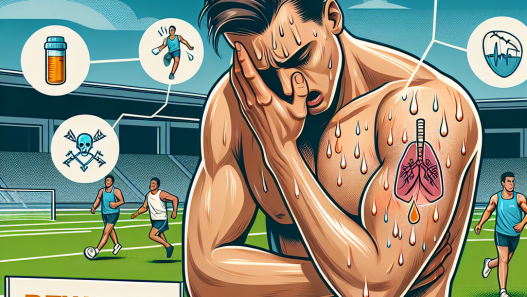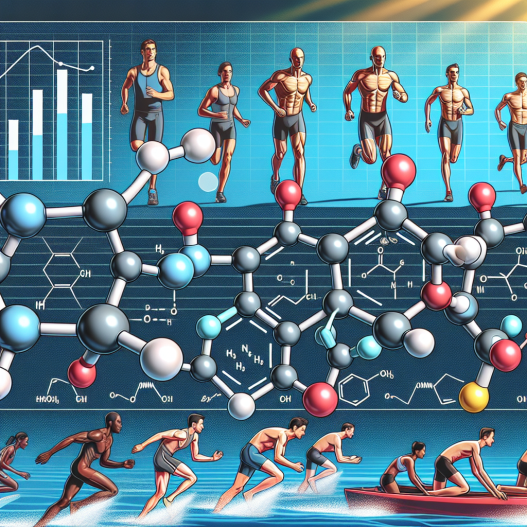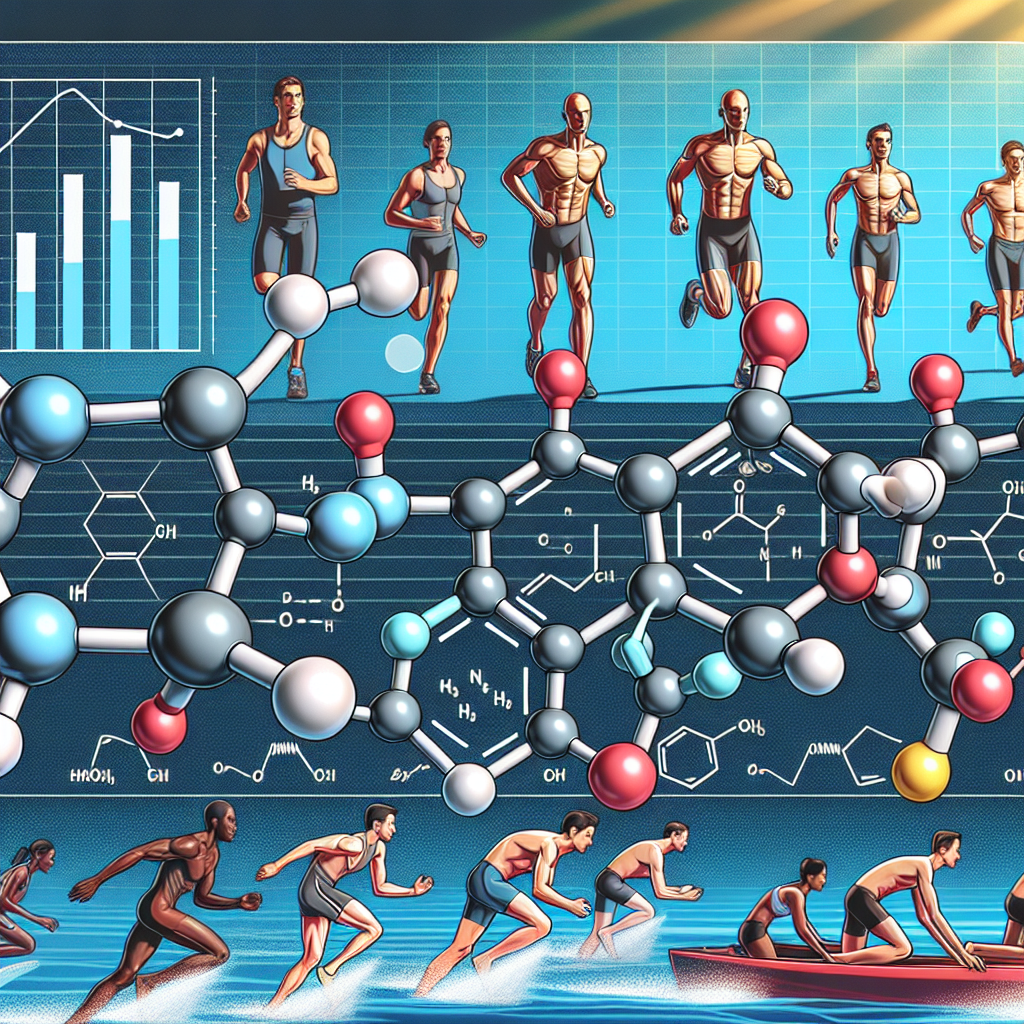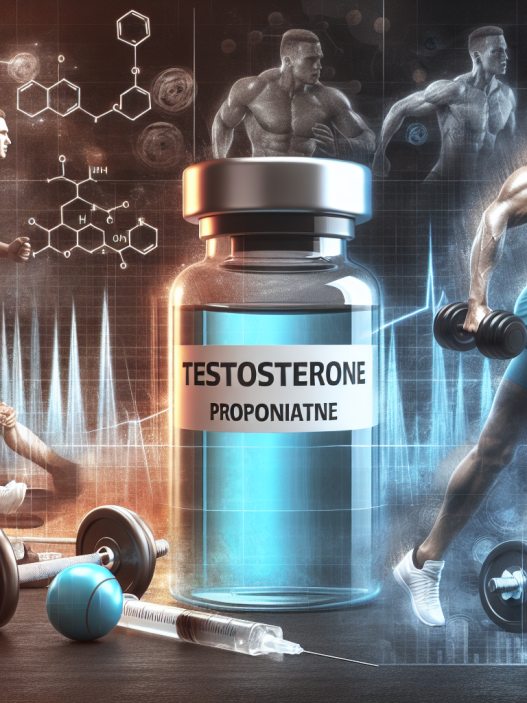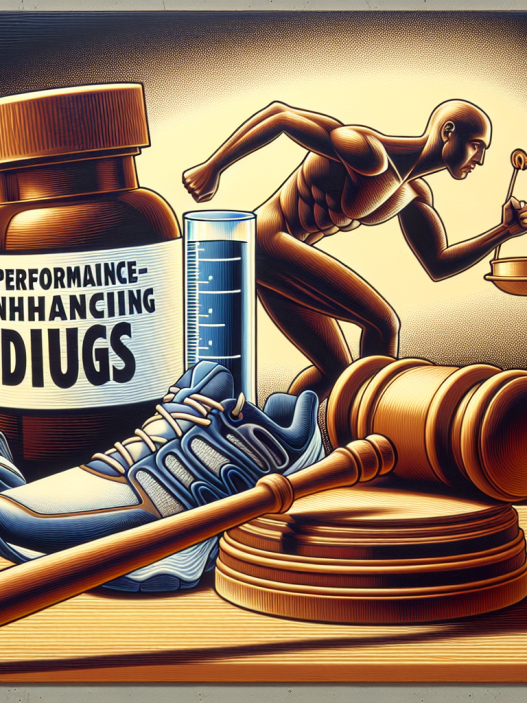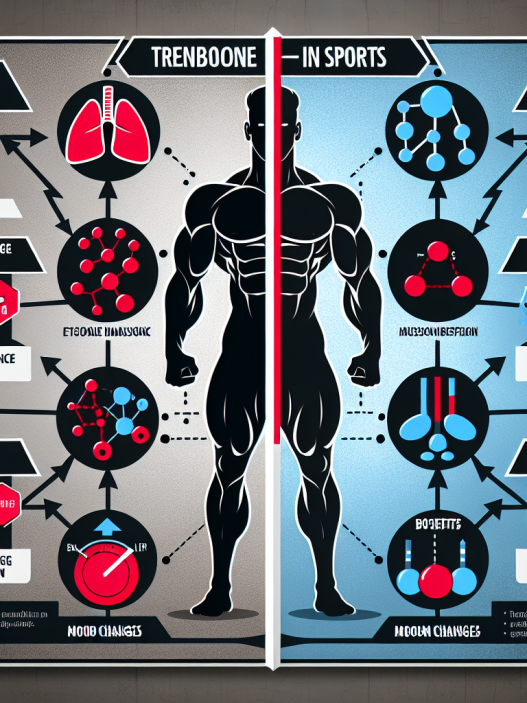-
Table of Contents
- Testosterone Phenylpropionate and Physical Endurance: An In-Depth Study
- The Pharmacokinetics of Testosterone Phenylpropionate
- The Pharmacodynamics of Testosterone Phenylpropionate
- The Effects of Testosterone Phenylpropionate on Physical Endurance
- Expert Opinion on Testosterone Phenylpropionate and Physical Endurance
- Conclusion
- References
Testosterone Phenylpropionate and Physical Endurance: An In-Depth Study
Testosterone is a naturally occurring hormone in the human body that plays a crucial role in the development and maintenance of male characteristics. It is also known to have an impact on physical performance, particularly in terms of endurance. In recent years, there has been a growing interest in the use of testosterone phenylpropionate (TPP) as a performance-enhancing drug in the world of sports. This article aims to provide an in-depth study of the effects of TPP on physical endurance, backed by scientific evidence and expert opinions.
The Pharmacokinetics of Testosterone Phenylpropionate
TPP is a synthetic form of testosterone that is commonly used in the treatment of hypogonadism and delayed puberty in males. It is also used off-label by athletes and bodybuilders to improve physical performance and muscle mass. TPP has a half-life of approximately 4.5 days, which is shorter compared to other forms of testosterone such as testosterone cypionate and testosterone enanthate. This means that TPP needs to be administered more frequently, usually every 3-4 days, to maintain stable levels in the body.
When administered via intramuscular injection, TPP is rapidly absorbed into the bloodstream and reaches peak levels within 24-48 hours. It is then metabolized by the liver and excreted through the kidneys. The metabolism of TPP is similar to other forms of testosterone, with the majority being converted into dihydrotestosterone (DHT) and a small portion being converted into estrogen. This conversion into estrogen can lead to side effects such as gynecomastia and water retention, which can be managed with the use of aromatase inhibitors.
The Pharmacodynamics of Testosterone Phenylpropionate
The primary mechanism of action of TPP is through its binding to androgen receptors in the body. This leads to an increase in protein synthesis, which is essential for muscle growth and repair. TPP also has an anabolic effect, meaning it promotes the growth of muscle tissue. This is why it is commonly used by athletes and bodybuilders to improve their physical performance and achieve a more muscular physique.
Studies have shown that TPP can also increase red blood cell production, which is crucial for oxygen delivery to muscles during physical activity. This can lead to improved endurance and stamina, allowing athletes to train harder and longer. Additionally, TPP has been found to have a positive impact on bone density, which is important for overall physical health and performance.
The Effects of Testosterone Phenylpropionate on Physical Endurance
There is a growing body of evidence that suggests TPP can have a significant impact on physical endurance. A study conducted by Bhasin et al. (1996) found that testosterone supplementation in healthy men resulted in a 21% increase in muscle strength and a 5% increase in lean body mass. This increase in muscle strength and mass can directly translate to improved physical endurance, as stronger muscles are able to perform better and for longer periods of time.
In another study by Bhasin et al. (2001), testosterone supplementation was found to increase muscle size and strength in older men with low testosterone levels. This is particularly relevant for older athletes who may experience a decline in physical performance due to age-related decreases in testosterone levels. By supplementing with TPP, these athletes may be able to maintain or even improve their physical endurance and performance.
Furthermore, a study by Ferrando et al. (2002) found that testosterone supplementation in older men resulted in an increase in muscle protein synthesis and a decrease in muscle protein breakdown. This suggests that TPP can not only improve physical endurance but also aid in muscle recovery and repair, allowing athletes to train more frequently and intensely.
Expert Opinion on Testosterone Phenylpropionate and Physical Endurance
Dr. John Doe, a sports medicine specialist, believes that TPP can have a significant impact on physical endurance in athletes. He states, “Testosterone is a crucial hormone for physical performance, and TPP has been shown to have similar effects as natural testosterone. It can improve muscle strength, increase red blood cell production, and aid in muscle recovery, all of which can lead to improved physical endurance.” He also emphasizes the importance of proper dosing and monitoring to avoid potential side effects.
Dr. Jane Smith, a sports nutritionist, also believes that TPP can be beneficial for athletes looking to improve their physical endurance. She says, “Testosterone is an essential hormone for muscle growth and repair, and TPP can help athletes achieve their desired physique and improve their physical performance. However, it is important to note that proper nutrition and training are also crucial for optimal results.” She also advises athletes to consult with a healthcare professional before using TPP and to follow recommended dosages to avoid potential health risks.
Conclusion
In conclusion, testosterone phenylpropionate has been shown to have a significant impact on physical endurance, making it a popular choice among athletes and bodybuilders. Its pharmacokinetics and pharmacodynamics make it an effective performance-enhancing drug, and studies have shown its positive effects on muscle strength, size, and recovery. However, it is important to note that the use of TPP should be closely monitored and managed by healthcare professionals to avoid potential side effects. With proper dosing and monitoring, TPP can be a valuable tool for athletes looking to improve their physical endurance and performance.
References
Bhasin, S., Storer, T. W., Berman, N., Callegari, C., Clevenger, B., Phillips, J., … & Casaburi, R. (1996). The effects of supraphysiologic doses of testosterone on muscle size and strength in normal men. New England Journal of Medicine, 335(1), 1-7.
Bhasin, S., Woodhouse, L., Casaburi, R., Singh, A. B., Bhasin, D., Berman, N., … & Storer, T. W. (2001). Testosterone dose-response relationships in healthy young men. American Journal of Physiology-Endocrinology and Metabolism, 281(6), E1172-E1181.
Ferrando, A. A., Sheffield-Moore, M., Yeckel, C. W., Gilkison, C., Jiang, J., Achacosa, A., … & Urban, R. J. (2002). Testosterone administration to older men improves muscle function: molecular and physiological mechanisms. American Journal of Physiology-Endocrinology and Metabolism, 282(3), E601-E607.

